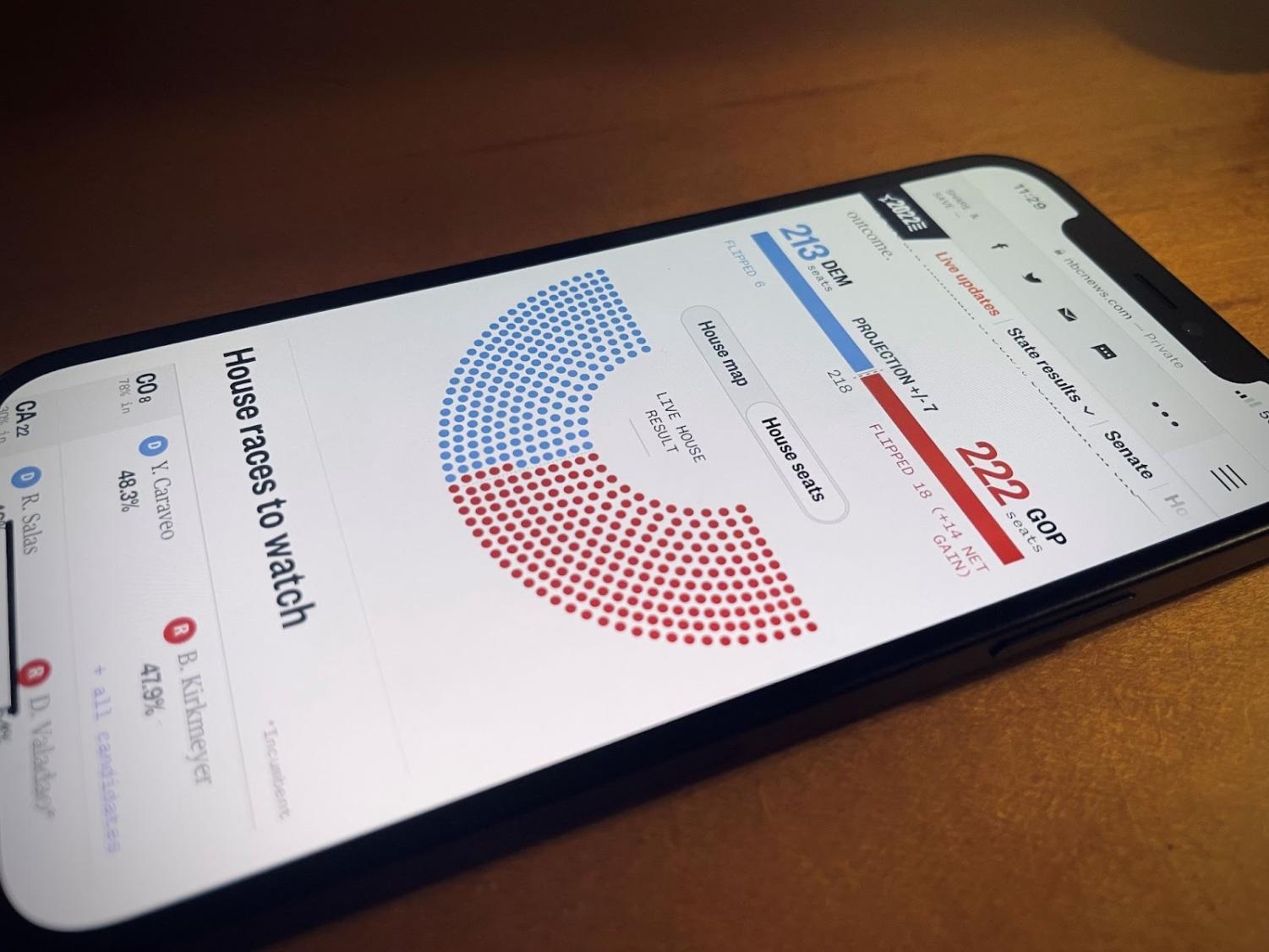The 2022 Midterms: Before, After, and the Little Red Ripple
November 10, 2022
Every two years, Americans have the opportunity to participate in the great experiment we call democracy through the franchise. 2022 marks a critical midterm election year, as well as a novel experience for those at West High eligible to vote. Traditionally held on the first Tuesday of November, this past year’s Midterm Elections fell on Tuesday, Nov. 8.
Key Voting Issues on Campus:
As the results of the election took well over a month to tabulate, we took some time to reflect on what students and faculty had to say ahead of the midterms. The responses from numerous surveys and polls conducted around campus could not have been any more diverse and complex than the election itself.
First off, in an Instagram poll involving 77 participants, students were asked to select four key voting issues. Among the top issues, 71% of voters chose racial equality/minority rights over COVID-19, the Ukraine crisis, and voting rights; 38% of participants chose gun legislation, followed closely by environment/climate change (35%), over threats to democracy and political polarization; and 44% of participants chose abortion, trailed by inflation/economy (30%), over immigration and crime.
For West High student Emily Zavala (12), a contributor to the independent political journal, Neutral Citizen Journalism, abortion was her chief voting concern. She recounted how “the overturning of Roe v. Wade [was] something [she] personally didn’t see coming and also something many women didn’t expect.” Although Zavala was not quite old enough to vote in 2022, she surmised that the fate of abortion access would inform her ballot in future cycles.
Another student and President of the Young Leaders Political Action Committee, Raphael Rebucas (12) stated that the cost of living was the most salient issue to him: “There’s so many students worried whether or not they can afford to live here in California . . . because of rising gas prices [and] rising costs for groceries.” Before the voting, Rebucas anticipated that many people “would share this concern coming into this upcoming midterm election.”
Mr. Ronne, a coach for Speech and Debate and Academic Decathlon, identified income inequality as a pertinent voting issue to him, particularly the “hollowing out of the middle class.” Mr. Ronne viewed the concentration of wealth as harmful, claiming that the growing wealth gap is akin to the “187 richest people on a boat holding more money than the 3.5 billion people [below deck].”
Important Takeaways from the Midterms:
The Republicans were poised to gain the majority in the House of Representatives and eventually succeeded, albeit by slim margins. Hence, Democrats managed to evade a “red wave” of incoming GOP lawmakers that several political strategists had projected.
Although not immediate, Democrats also managed to retain control of the Senate, widening their majority following Georgia incumbent Raphael Warnock’s win against Republican contender Herschel Walker in the Dec. 6 runoff.
Elsewhere, John Fetterman won the tight senatorial race against Mehmet Oz in battleground Pennsylvania, a sigh of relief for Democrats following the former candidate’s recuperation from a stroke. Conversely, in the gubernatorial race, Florida incumbent Ron DeSantis beat Democratic challenger Charlie Crist by a generous margin, over 19%, a major victory for Republicans.
In addition, the Midterms were marked by several milestones. Wes Moore (whom some students might remember from reading The Other Wes Moore as a freshman) won Maryland’s gubernatorial race, making him the state’s first Black governor. Likewise, Maura Healey won the gubernatorial race in Massachusetts, making her the state’s first female and the nation’s first openly lesbian candidate elected as governor.
Campaign Strategies:
Commenting just days before the election on how the Republicans were favored to win the House, Rebucas attributed this to effective campaigning, claiming that GOP candidates focused on tangible “kitchen table issues” that had direct and immediate consequences on everyday Americans: inflation, rising gas prices, rising interest rates, and crime. While Rebucas commended the Democrats for championing issues like abortion access and social justice, he evaluated that “economic issues … hit closer to home for more voters.”
Mr. Ronne shared similar observations, alleging that Democrats could have done a better job “crystallizing their successes” to reinforce their position ahead of the midterms. However, Mr. Ronne also suggested that Republicans portrayed the economy as one in a desolate state to prescribe a sense of urgency within more voters: “Fear disables reason,” he intimated.
Interestingly enough, unlike former Presidents Obama or Trump, President Biden managed to retain a considerable number of seats of his own party in the House and Senate. It is common for Congressional control to falter during midterm cycles, namely, in the 2010 and 2018 midterms when Democrats lost 64 seats and gained 41 seats respectively. With the “red wave” failing to materialize, this could suggest that Republican issues like inflation only had a moderate effect on voters while hot-button issues like abortion and gun legislation espoused by Democrats resonated with voters more. This could also suggest “split-ticket” voting.
The Vote and You:
Zavala carefully articulated that “[by] voting, you’re not only contributing [to] and upholding the democratic system … that many other people from different countries don’t have, but you’re helping shape the future of our federal government and how certain issues will be addressed.” Mr. Ronne lamented our nation’s “sad state of affairs,” citing that in the 2020 presidential election, reportedly “80 million people who could vote didn’t vote.”
Offering advice to West High peers in hopes of fostering a more politically cognizant and civically engaged student body, Zavala phrased it succinctly: “Get off Tik-Tok for daily news, be productive, educate yourself, and vote,” because if politics is the way we govern each other, then voting is our law book. “If you hide from the world, it will come to hurt you,” Mr. Ronne warned. Politics might sound convoluted, unnecessarily petty, or out of reach, but I am often reminded of the little things that can make profound differences, not the other way around. Now is the time to reconsider our apathy and engage in replacing any lingering complacency with conviction.

